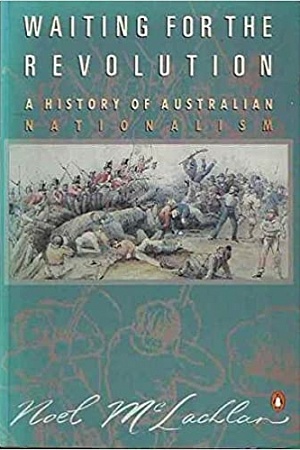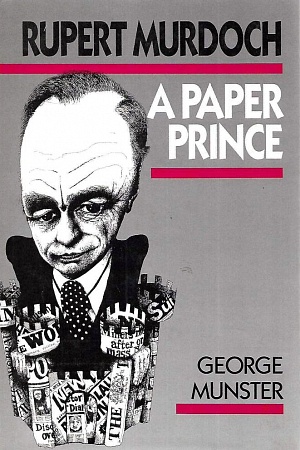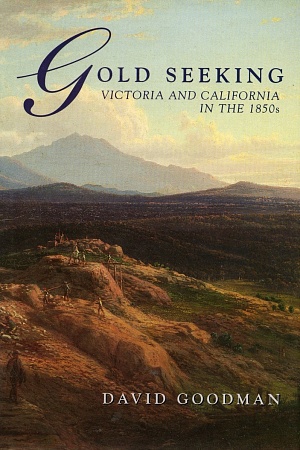Australia and the British Embrace: The demise of the imperial ideal
MUP, $49.95 hb, 315 pp
Australia and the British Embrace: The demise of the imperial ideal by Stuart Ward
When did Australia grow up? Australian historians have accepted, almost as an obligation of their trade, that they must declare the moment when the child reached mature adulthood. Was it, as Justice Murphy proclaimed in splendid isolation on the High Court bench, at the moment of the adoption of the Commonwealth Constitution in 1901? He was, admittedly, an amateur historian. Was it with the passage of the Statute of Westminster in 1931, when the Dominions were given the right to have their own defence and foreign policies? Or in 1942, when Prime Minister Curtin looked to the United States ‘free of any pangs as to our traditional links and kinship with the United Kingdom’? Or with the signing of the ANZUS Treaty in 1951? Or is the safest thing to stick with the election of the Whitlam government in 1972?
Australia grows up many times and equally often reverts to childishness. At the wish of Australia, the Statute of Westminster is not to operate in Australia until Australia decides to have it – which it does not do until 1942. By the end of his prime ministership, Curtin is looking to create a stronger British Commonwealth and appoints the duke of Gloucester to Yarralumla – certainly a very childish appointment. The signing of the ANZUS treaty is shortly followed by the tour of the young Queen Elizabeth, who is greeted with rapture by her Australian subjects. And for all that Gough Whitlam gave us Al Grassby and ‘Advance Australia Fair’, he gave new life to the Queen under the title Queen of Australia – to the great benefit of latter-day monarchists. Of course, in modern republican eyes, Australia is still not properly grown up.
Stuart Ward throws out this baby and all the muddy water and urges us to think of Australia free of any traditional images of growing up and maturation. His history runs like this: Australians’ primary allegiance was to a British race patriotism and remained so until the British decided to apply for membership of the European Common Market (EEC) in 1961. Prior to this, all the conflicts with Britain, all the ‘turnings-away’– to America for defence and Japan for trade – all the ‘growings-up’ in different spheres had not disturbed the fundamental commitment of Australians to be British and to live within the worldwide community of British people. So, Australia did not grow into nationhood; it was pushed into it. Only after the shock of the British decision to join the EEC and abandon its trade preferences to Commonwealth countries does an exclusive Australian nationalism emerge.
These large claims surround a detailed account of the British decision to join the EEC and Australia’s response. Ward casts his net widely. We follow the internal deliberations not only of the British and Australian governments but of the French, who were suspicious of the British move, and of the Americans, who were warmly supportive. It is interesting to learn the French views of the Commonwealth. It is fascinating to watch British policymakers deliberate on how best to screw the Commonwealth countries without their screaming too loudly. The central player in Britain is Prime Minister Harold Macmillan. His diaries and personal letters allow Ward to show him in all his guises – hard-headed in his own circle; a supporter of the new Commonwealth for the Canadians; sentimental about the old Commonwealth before the ‘blacks and yellows’ joined it when he is buttering up Menzies.
The deliberations within the Australian government and community are used by Ward for his wider purposes. It takes the Australians some time before they realise what is happening. They are used to conflict with Britain, which they expect to be resolved by goodwill, the British gift for compromise and the commitment to the wider British loyalty. That Britain’s interests are opposed to Australia’s, and that Britain is willing to pursue them at the expense of Australia’s, are the realisations that rock the foundations like nothing else before. The Fall of Singapore was a blip compared to this.
The first man to step forward in defence of Australia was John McEwen, ‘Black Jack’, the Minister for Trade, leader of the Country Party and deputy prime minister. He was tough, relentless, well-informed. They were his people – the growers of fruit, the keepers of cows – whose livelihood would be imperilled unless Britain fought for some concessions from the Europeans and the Europeans were brought to agree. McEwen travelled to London and Washington and made an impression but brought home no reassurance.
Then it was Menzies. He emerges in Ward’s account as a massive, tragic figure. He had to worry about the economic consequences for his country of Britain in Europe, but his chief concern was that Britain would be swallowed up in a European federation and unable to lead the British people around the globe. He, more than any other individual, had the power to stop the British move. He was the elder statesman of the Commonwealth with immense prestige in Britain. Macmillan’s nightmare was that Menzies would appeal over his head to the British people. Then his worried backbench would have a champion and the European project would unravel.
Menzies had the power – but he could not use it. How could he? He wanted a Commonwealth whose prime ministers, as of old, sat around a table and resolved their differences, not a Commonwealth where one government campaigned against another. He carried with him the External Affairs brief that warned of the dangers of Australia making itself objectionable to the governments of Britain and the USA, whose help might soon have to be called on against Indonesia. He might have gone into battle for the old Crown Commonwealth, but not for a Commonwealth of Nehru and Nkrumah and ‘a nest of republics’.
Much thought had been given over the years to how Britain and Australia might separate. Even in colonial times, it was clear that Britain would not fight to keep the Australian colonies; if they wanted to leave, they would leave peacefully. The end of the relationship, with Britain’s defeat in war, had been clearly envisaged, and Australians twice went to Europe to fight for her. But no one had thought that the Empire would end by Britain abandoning it – and requiring Australia’s consent to do so. And the consent was finally given by the prime minister who was British to the bootstraps.
Ward’s book was originally a thesis. It has the virtue of proclaiming a thesis – an argument about historical process, not a ‘reading’ of texts. It is still too much the thesis in its repetition and summaries and in the need to quarrel with everyone else who has written on this topic. It has the due caution of a thesis when it comes to deal with the emergence of the new, more exclusive nationalism of the 1960s and beyond. Of course, Ward concedes, Britain’s move into Europe did not cause this in any direct, simple way. But, if there was an Australian national tradition ready to be drawn on, then we might have to return to the image of a child growing up and becoming more confident. I don’t think maturation can be left out of the story, but the book remains a stunning and challenging contribution to the core question of Australian historiography.











Leave a comment
If you are an ABR subscriber, you will need to sign in to post a comment.
If you have forgotten your sign in details, or if you receive an error message when trying to submit your comment, please email your comment (and the name of the article to which it relates) to ABR Comments. We will review your comment and, subject to approval, we will post it under your name.
Please note that all comments must be approved by ABR and comply with our Terms & Conditions.